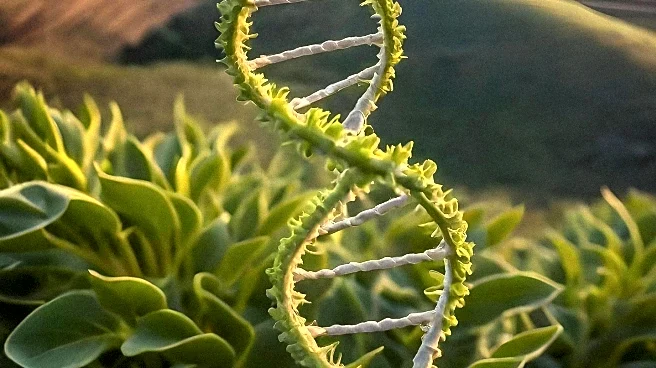What's Happening?
Scientists have conducted an in-depth study on María Branyas Morera, who was recognized as the world's oldest person until her death at 117 years old. The research aimed to uncover the secrets of her extraordinary longevity by analyzing her genetics, microbiome, and lifestyle. The study found that Morera possessed an exceptional genome enriched with variants associated with enhanced lifespan, similar to those found in other species like dogs and flies. Her genetic profile showed no signs of dementia and included variants that kept blood lipid levels low, protecting her heart and cognition. Additionally, Morera maintained an efficient immune system and a gut microbiome characteristic of a much younger individual. Her lifestyle choices, such as adhering to a Mediterranean diet and avoiding alcohol and smoking, were also noted as contributing factors to her longevity.
Why It's Important?
The findings from this study highlight the potential impact of genetics and lifestyle on longevity, offering insights into how certain gene variants and lifestyle choices can contribute to a longer life. This research could influence public health strategies by emphasizing the importance of diet and lifestyle in promoting healthy aging. The study also underscores the role of the gut microbiome in longevity, suggesting that dietary interventions could be beneficial in prolonging life. These insights may lead to further research into genetic and microbiome factors that can enhance lifespan, potentially benefiting individuals and healthcare systems by reducing age-related diseases.
What's Next?
The study opens avenues for further research into the genetic and microbiome factors that contribute to longevity. Scientists may explore the potential for dietary interventions to enhance the gut microbiome and promote healthy aging. Additionally, the findings could lead to more comprehensive studies involving larger groups of supercentenarians to validate the results and understand the broader implications of genetic and lifestyle factors on longevity. Researchers may also investigate the possibility of developing personalized health strategies based on genetic and microbiome profiles to improve lifespan and quality of life.
Beyond the Headlines
The study raises ethical and scientific questions about the role of genetics versus lifestyle in determining longevity. It challenges the notion of 'survivorship bias,' suggesting that genetic factors may play a significant role in the longevity of supercentenarians. The research also highlights the complexity of aging, indicating that a combination of genetic, microbiome, and lifestyle factors contribute to a long life. This could lead to a shift in how aging is studied and understood, emphasizing the need for a holistic approach that considers multiple dimensions of health and genetics.










